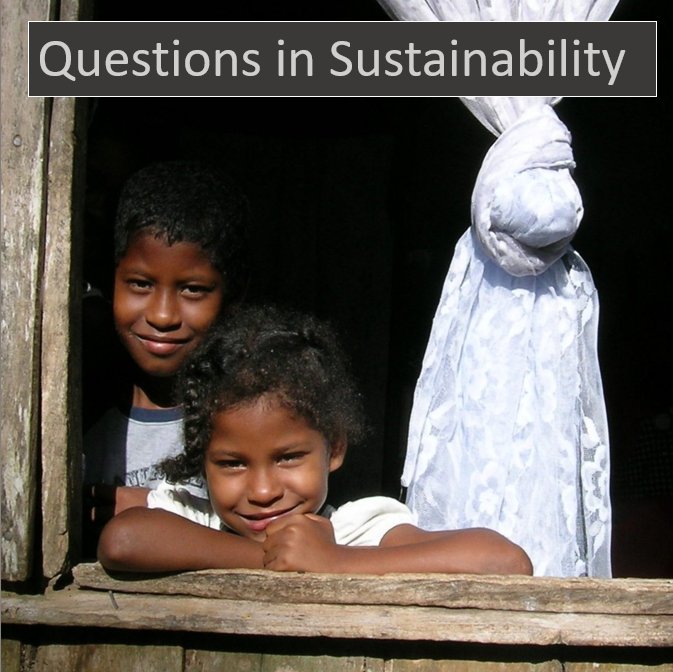
766
Downloads
14
Episodes
A science-based podcast series that explores programs, people, and ideas in food-system sustainability. A joint production of the Southern SARE (Sustainable Agriculture Research and Education) Program and the University of Kentucky. Our new podcasts will feature research/education projects of graduate students funded in part by the Southern SARE Program.
Episodes
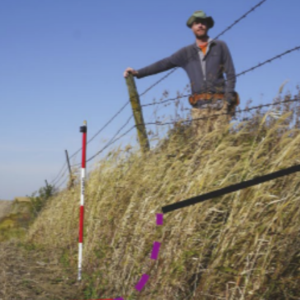
Tuesday May 10, 2022
Historical Rates of Soil Erosion
Tuesday May 10, 2022
Tuesday May 10, 2022
New estimates show that soil erosion in the Midwest has been more substantial over the past ~150 years than previously known. These findings highlight the need for greater implementation of soil conservation measures.
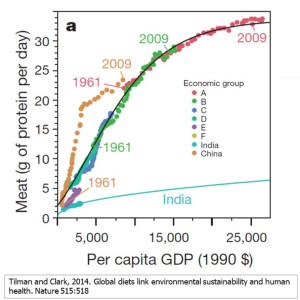
Wednesday Apr 13, 2022
Looking forward to climate-friendly beef?
Wednesday Apr 13, 2022
Wednesday Apr 13, 2022
Dr. Kim Stackhouse-Lawson, from Colorado State University, takes on challenging questions about beef production. For example, how can we produce the beef people want but with major reductions in greenhouse gas emissions? And she does so with passion, collegiality, and grace.
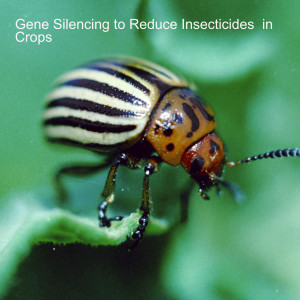
Tuesday Feb 22, 2022
Gene Silencing to Reduce Insecticides in Crops
Tuesday Feb 22, 2022
Tuesday Feb 22, 2022
This episode explores RNAi, also called RNA interference and gene silencing. RNAi is an advanced genetics technique with relevance for many biological applications. Our guest today, Dr. Russell Groves from the University of Wisconsin, provides an outstanding overview of RNAi designed to control insects and to reduce the use of synthetic insecticides.
You can purchase the featured tune for this episode--Coquette Instrumental--by the Preservation Hall Jazz Band--at: https://www.amazon.com/Coquette-Instrumental/dp/B00138JWXE. It is marvelously joyous and is not to be missed!
Colorado potato beetle, Clemson University - USDA Cooperative Extension Slide Series

Sunday Feb 20, 2022
Working Towards Decentralized Food Systems
Sunday Feb 20, 2022
Sunday Feb 20, 2022
We interviewed Donna Isaacs, a farmer-leader in northern Louisiana who is working to promote regenerative agriculture and decentralization of food systems. Most recently, her work has led to a grant of over one million dollars from the USDA’s Natural Resources Conservation Service, Conservation Innovation Grant program, to continue and expand her work.
The featured music for this episode is, “My Soul,” by Colin Ska Johnson, Live at Monty Hall with Jeff Sarge, freemusicarchive.org.
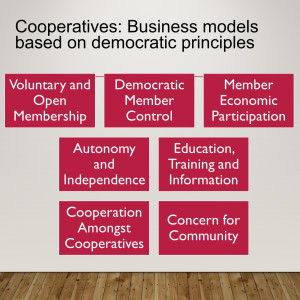
Monday Feb 07, 2022
Cooperatives: Business models based on democratic principles
Monday Feb 07, 2022
Monday Feb 07, 2022
“All That You Ask Me” performed by Rodney Miller and Airdance. Thanks, Rodney!
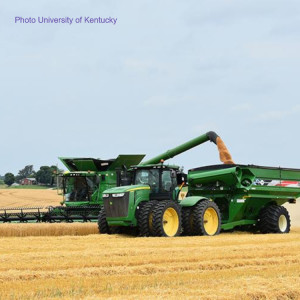
Tuesday Dec 28, 2021
Is Agricultural Intensification Destructive to Rural Communities?
Tuesday Dec 28, 2021
Tuesday Dec 28, 2021
Today’s episode touches on a broad landscape of important questions in sustainability, thanks to the social sciences. Do Americans want a largely agrarian food system? Or an industrial model? Who is the principal beneficiary of an industrial model? Rural communities? Consumers? Agribusiness interests? Does an industrial model extract rural wealth, “hollowing out” farming communities? Is sustainable intensification good for farmers? Or do they end up being the lowest-cost producers in global commodity chains? If so, who benefits from that? Is it in society’s interest to help farmers stay on the land, in hopes of creating robust, middle-class, family-owned farming communities?
Featured music: Beethoven 3rd Symphony Movement #1, performed by the Czech National Symphony Orchestra, imslp.org
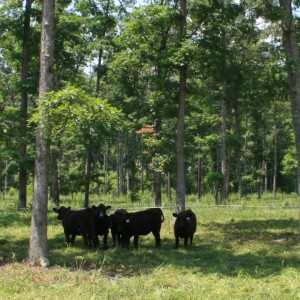
Monday Dec 13, 2021
Silvopasture Often Provides Sustainable Intensification
Monday Dec 13, 2021
Monday Dec 13, 2021
Silvopasture—a combination of trees and pasture—often provides for overall greater productivity than either alone. While there is still much to learn about yields in silvopasture, it appears to hold promise for sustainably intensifying yields on many farms. Listen to an expert, Dr. Gabriel Pent from Virginia Tech, describe his research in this area. Click here or google “Over-yielding in temperate silvopastures: a meta-analysis” for a free copy of the peer-reviewed paper on this subject.
The featured music piece is Mozart’s 41st Symphony, fourth movement. Photo by Gabriel Gent
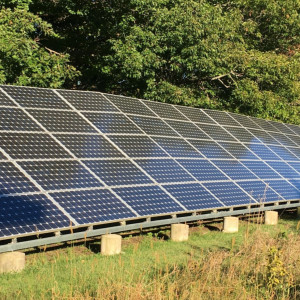
Monday Nov 15, 2021
Clean Energy Must Be Responsible Energy
Monday Nov 15, 2021
Monday Nov 15, 2021
The Executive Director of the Kentucky Conservation Committee, Lane Boldman, explains “merchant solar” and some of the controversy it engenders (https://kyconservation.org/solar-lands). Noting that clean energy is not always responsible or just energy, she defends the importance of transparency and community engagement in controversial topics such as this, a lesson we natural scientists would do well to learn.
See Citizen’s Resource Guide on Large Scale Merchant Solar at https://drive.google.com/file/d/1tEAsX9jbU9xsR12oPQsMueaSYQOa-7Qz/view
Music by Joseph Vincelli Group
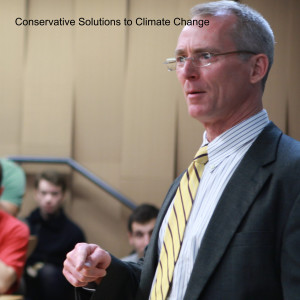
Monday Nov 15, 2021
Conservative Solutions to Climate Change
Monday Nov 15, 2021
Monday Nov 15, 2021
Bob Inglis has a remarkable record of accomplishment as a thoughtful advocate of conservative solutions to climate change. He currently serves as Executive Director of republicEn.org, a growing group of conservatives who care about climate change. No matter your ideological orientation, he is worth hearing as a thoughtful, critically important voice on addressing climate change.
Ontario Swing/Bowin’ The Strings performed by Rodney Miller and Airdance
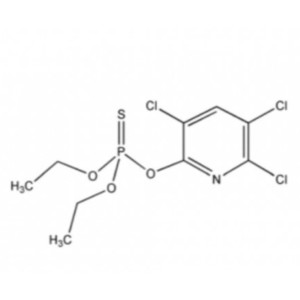
Saturday Oct 16, 2021
Ban This Pesticide, Said Scientists. No, Said Policymakers.
Saturday Oct 16, 2021
Saturday Oct 16, 2021
In 2015, EPA scientists recommended banning all uses of the insecticide, chlorpyrifos, on crops, because of the risks to the IQ of children. However, EPA leadership did not sign off on the ban. Leonardo Trasande, MD, MPP, explains the evidence of hazard for chlorpyrifos, as well as the economic cost to the nation from lost IQ due to chlorpyrifos and related insecticides. Although chlorpyrifos was finally banned earlier this year, this case reminds us of the need to act when the science is solid, even if—and especially if—policymakers dismiss the science.
(Green Isle performed by Rodney Miller and Airdance)
